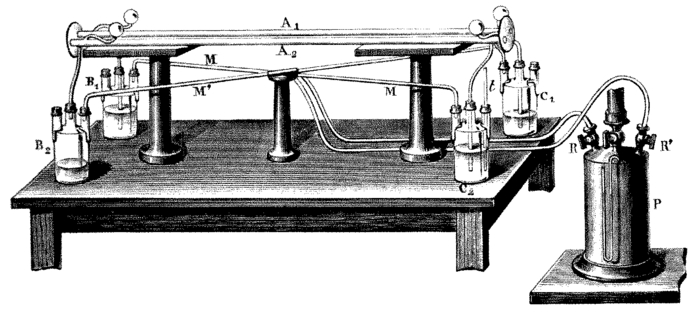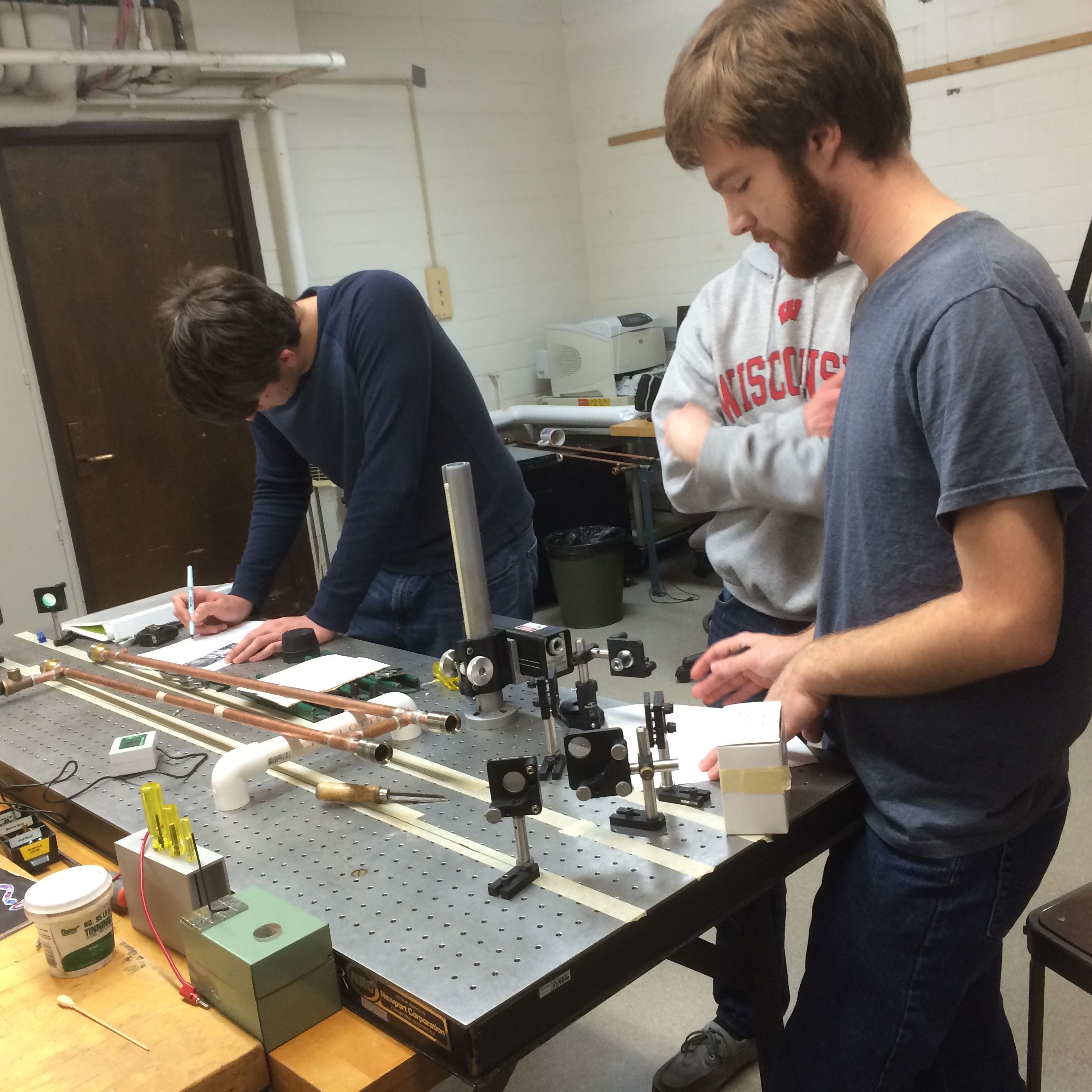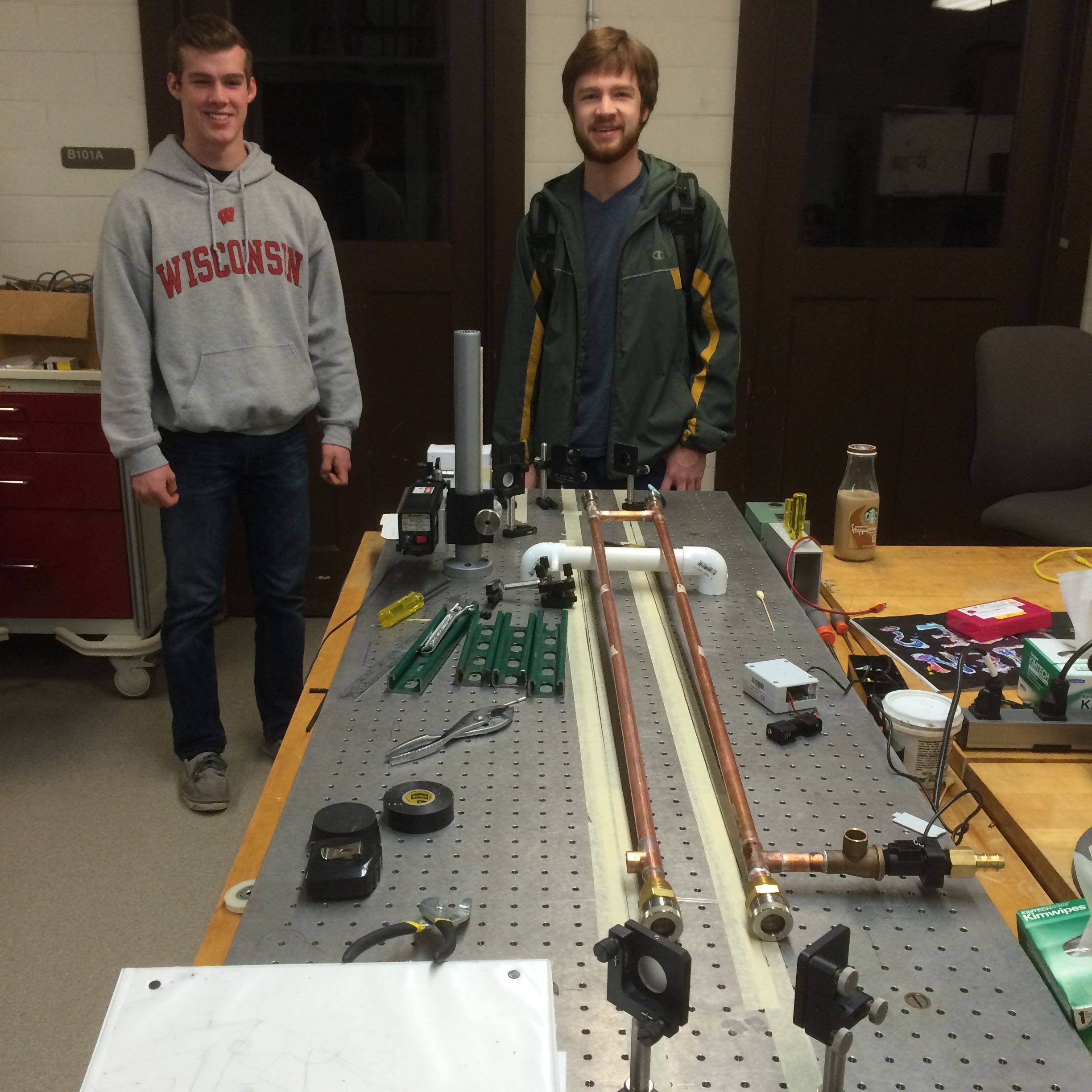Fizeau Experiment



We all learn that light speed in a stationary medium is v=c/n where n is the refractive index. What is the speed if the medium is moving at speed u? Could that speed exceed c? Using interferometry, we can measure the change in light speed induced by fast moving water. Does the relativistic velocity addition formula describe this? What if we rotate the table. Wait a sec here, the Earth does that for us. (See Foucault pendulum project.) This Fizea project was started in Fall 2014 by students in Physics 247. Optics, piping in hand, video data soon! Help out! I think the water flow will be the largest systematic error. Swinging pendulm better maybe?
References
Error analysis: 'The Fizeau effect: Theory, experiment, and Zeeman’s measurements,' Am. J. Phys. 45, 1154 (1977); http://dx.doi.org.ezproxy.library.wisc.edu/10.1119/1.10759 http://scitation.aip.org.ezproxy.library.wisc.edu/content/aapt/journal/ajp/45/12/10.1119/1.10759
Setup: 'Fizeau’s “aether-drag” experiment in the undergraduate laboratory,' Am. J. Phys. 80, 497 (2012); http://dx.doi.org.ezproxy.library.wisc.edu/10.1119/1.3690117
Participants
- Liev Birman
- Benjamin Hoscheit
- Mathew Fraizer